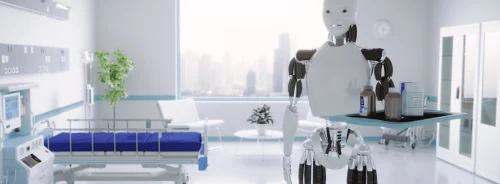Federal Health Minister Karl Lauterbach reiterates willingness for dialogue at the Hospital Summit – "We take every suggestion and criticism seriously"
Berlin/Bad Saarow, 11 September 2024. No major surprises, but a few concessions and the promise to seek dialogue with all parties involved regarding the hospital reform. "It’s this latter point that we’ve missed over the past two years – the involvement of practitioners in developing the major hospital reform," commented VKD President Dirk Köcher on the appearance of Federal Health Minister Karl Lauterbach at the 2024 Hospital Summit of the DKG last Monday. The newly elected Presidium of the Association of Hospital Directors of Germany (VKD) has been meeting since Tuesday in Bad Saarow, Brandenburg. The agenda includes structural and future issues of the association and, of course, the current situation of hospitals as a pressing problem.
The members of the Presidium largely agreed with Dr. Gerald Gaß’s clear statements regarding the glaring weaknesses of the reform law. The Chairman of the DKG had stated that, in order to rescue the necessary reform, while at the same time preventing cold structural changes and a collapse in care, particularly in rural areas, a swift and viable compromise between the federal and state governments must be found.
The DKG's compromise proposal, a three-point plan, also aligns with VKD’s positions, as recently published in the 2024 VKD Practice Reports and reaffirmed during the Presidium meeting:
In the first phase, until the end of 2026, hospital planning should be implemented based on North Rhine-Westphalia's concept. This would allow for the introduction of nationwide framework conditions for hospital planning through service groups. The additional measures currently planned by the federal government, such as minimum case numbers and staffing requirements, should only be thoroughly discussed and their impacts analysed afterwards.
The planned financing model, as it currently stands in the law, needs to be restructured. It could severely threaten the existence of basic care hospitals, particularly in rural areas. It is by no means independent of case numbers, as claimed, and does not lead to de-commercialisation. This contradicts the reform’s goal and endangers comprehensive care. Proven alternatives are available and could be used until a new formulation is found.
Another crucial demand is for comprehensive de-bureaucratisation, which has been called for by practitioners for years. "We have consistently pointed out the positive effects this would bring," said the VKD President. "Less bureaucracy not only reduces costs but also relieves staff who spend many hours daily on often unnecessary documentation. This excessive bureaucracy significantly exacerbates the shortage of skilled workers. It also reflects a lack of trust in hospitals’ work. In times of demographic change, it is increasingly unfeasible, as staff will no longer be available in the required numbers."
Moreover, an inflation adjustment for hospitals, which has been repeatedly denied, is urgently necessary. This isn’t just about individual hospitals in the red, but about the entire hospital sector, which is considered essential for public services by the citizens of this country. The recent hospital insolvencies over the past few days once again highlight the need for swift support. Any form of reform by 2027 will inevitably lead to further uncontrolled losses of hospitals and specialist departments.
The fact that the Federal Health Minister has stated he is open to suggestions and feedback, and apparently intends to engage more intensively with the federal states, is seen positively by the Presidium, despite the scepticism towards him from the VKD. However, many questions remain unanswered. Key clarifications, such as those regarding minimum case numbers and service groups, are to be defined in ordinances only after the law has passed through the Bundestag. Overall, more exceptions and flexibility on the ground must be enabled. Additionally, it is unclear why such a complex and large-scale project like this reform does not require approval from the Bundesrat. This could prove to be a significant mistake, as the federal states, being responsible for hospital planning, are directly affected.
"Optimism is difficult given the reform process so far. However, we sincerely hope that the federal and state governments will come to an agreement, and that we can achieve a good reform. We need predictability and clarity on the future of our hospitals. Time is running out, as the Bundestag is set to vote on the law on 18 October. If crucial parts remain impractical for implementation, it will severely harm the healthcare system in our country," said VKD President Dirk Köcher.
Source & Image Credit: VKD






